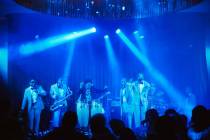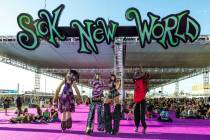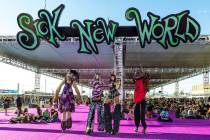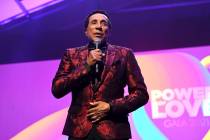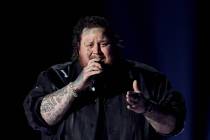Yarrow believes folk music maintains relevance
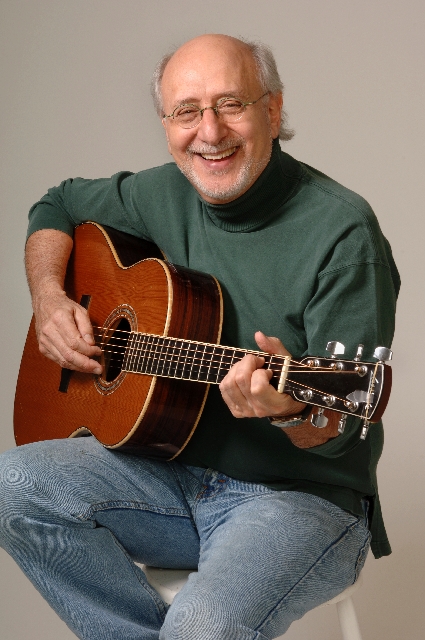
When Peter Yarrow performs at the Historic Fifth Street School Friday, members of the audience surely will hear some of their favorite folk songs.
They’ll undoubtedly hear songs they’ve come to love from both Yarrow’s solo career and his days as a member of the legendary folk trio Peter, Paul and Mary, as well as a few stories from those days.
And, of course, it’s very likely that they’ll hear Yarrow sing “Puff, the Magic Dragon,” the tune he co-wrote that has become a much-loved classic in the years since its 1963 release.
But, even with all of that, don’t expect “An Evening with Peter Yarrow” to be some sort of superficial greatest hits/oldies show. That’s because, for Yarrow, folk music remains as powerful and as necessary a vehicle as ever for people to gather together, share stories, commit to action and, when necessary, help each other heal.
It turns out that several decades, many best-selling albums and miles of history later, Yarrow is still fighting the good fight. During a recent phone interview, Yarrow said that, a few days earlier, he had performed a free concert in Ridgefield, Conn., not far from Newtown, where a gunman on Dec. 14 killed 20 children and six adults at Sandy Hook Elementary School.
Families of the victims, many first responders and others affected by the shootings attended the concert, which Yarrow said was reminiscent of gatherings held during the civil rights movement of the ’60s.
“What I’m doing today is like today’s incarnation of what this music was about years and years ago,” he said.
“So that will be the case from the stage, as well, when I’m in Las Vegas. It’s not just about reminiscing, not just about playing the hits, but about, ‘What can we do?’ These songs have great relevance.”
In 1962, Yarrow and his bandmates, Noel (Paul) Stookey and Mary Travers, released their first Peter, Paul and Mary album. Over the course of nearly five decades, the trio would go on to win five Grammy awards, earn eight gold and five platinum albums and record more than a dozen Top 40 and six Top 10 hits.
Along the way, until Travers’ death in 2009, Peter, Paul and Mary would expose mainstream music audiences to the work of such songwriters as Woody Guthrie, Pete Seeger and Bob Dylan.
Today, some consider the folk scene of the early ’60s a discrete era in American music history whose time has come and gone. Yarrow isn’t one of them.
Folk music “was hardly a fad,” he said. “Folk music by definition is the music of the people that expresses what their hearts need to say. It’s not music that is written for the bucks.”
Through folk music, people would tell their stories, talk about their lives and share their joys, losses, rituals, hopes and dreams, Yarrow said.
Folk music “helped to fuel the civil rights movement,” he said, and songs such as Dylan’s “Blowin’ in the Wind” helped to instill change “in the hearts of America, and that’s hardly a fad. That’s a cultural shift, perhaps the most dramatic one in my lifetime.”
Today, Yarrow continued, “we have slipped, in many ways, back into a model that is far too often accompanied by greed, by corruption, by dishonesty.
“As an activist, I can talk about this. But as a performer, I can address it and help to make things better, and I can do that not so much through being the loyal opposition but by bringing people together with conscience and caring in this tradition of folk music.”
Folk music even can heal. At the Ridgefield concert, “you could see it,” Yarrow said. “These people are in a state of post-traumatic stress. It took a lot for them to drop their guard and open their hearts and feel safe enough to express the depths of (their) agony. If we didn’t have this music, we wouldn’t have this catharsis.”
Yarrow is gratified that the music he helped to create has been embraced by generations of listeners.
“There are many people around the country who say, ‘This music was the soundtrack of my life, my conscience, my activism,’” he said.
Yet, Yarrow admits that he had no inkling then that the music he and his colleagues were creating would be so enduring and so well-loved now.
“It’s like being in love: You’re not measuring it when you’re experiencing it. You might at some point reflect on it, but if you’re in the moment, you’re not standing apart from it, saying, ‘What am I feeling about this?’ ”
Today, Yarrow remains a committed activist who performs, often pro bono, on behalf of a variety of causes. “Puff, the Magic Dragon” and “Day is Done,” the 1969 hit that he wrote, have been adapted into best-selling children’s books. He works on behalf of “Don’t Laugh at Me,” a program of Operation Respect, a nonprofit organization he founded that works to create strong, cooperative school communities free of bullying, teasing and violence.
And, of course, Yarrow continues to perform, both solo, with his daughter, Bethany Yarrow, and her musical partner, Rufus Cappadocia, and with other musicians.
During Friday’s show, Yarrow certainly expects to sing a few songs and tell a few stories.
“I’m talking about history, but it’s not all history,” he said. “It’s the history of today.”
And, absolutely, Yarrow adds, “it will be about us.”
Contact reporter John Przybys at jprzybys@reviewjournal. com or 702-383-0280.
PREVIEW
What: An Evening with Peter Yarrow
When: 8 p.m. Friday
Where: Historic Fifth Street School, 401 S. Fourth St.
Tickets: $10 advance, $15 at the door (229-3515)










